Making sustainable cocoa the norm
Many cocoa producers around the globe earn only a third of what they need to meet their basic needs.
In order to improve that, Trias is now launching a new project on sustainable cocoa that will run until September 2025. The idea is to share tools and best practices among some of the cocoa cooperatives we partner with in South America and Central Africa. That way, they can learn from each other and start working in a more eco-friendly fashion.
sustainable cocoa in Peru, Ecuador, DR Congo and cameroon
For this project we’ll work with cocoa cooperatives Kallari (Ecuador), Unocace (Ecuador), Aprocam (Peru), Cocama (DR Congo) and Conaprocam (Kameroen). What do we want to achieve? Improve the quality of their cocoa, make production more sustainable and improve their access to markets. In doing so, we’ll focus on:
ecological agriculture
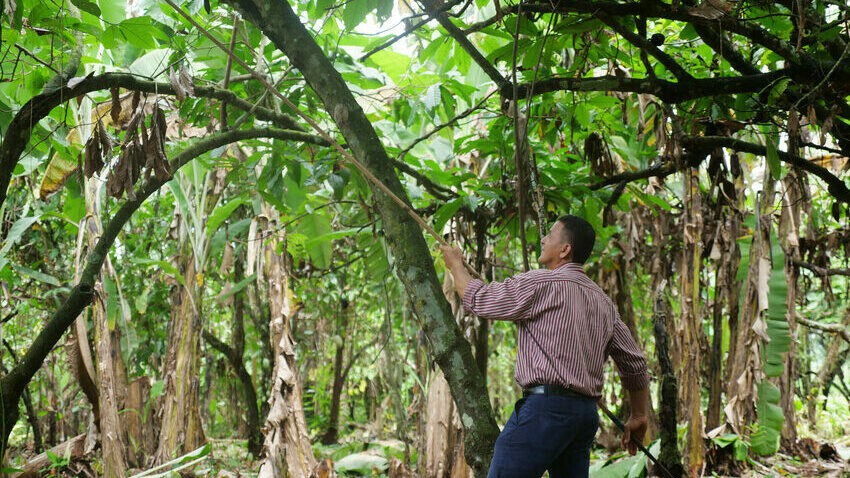
Farmers not only plant cocoa trees in their fields, but also other crops. This ensures that the soil becomes much richer and healthier and their trees are less likely to get sick. Moreover, this improves the quality of the cocoa, which in turn increases the yield.
new and more
export markets
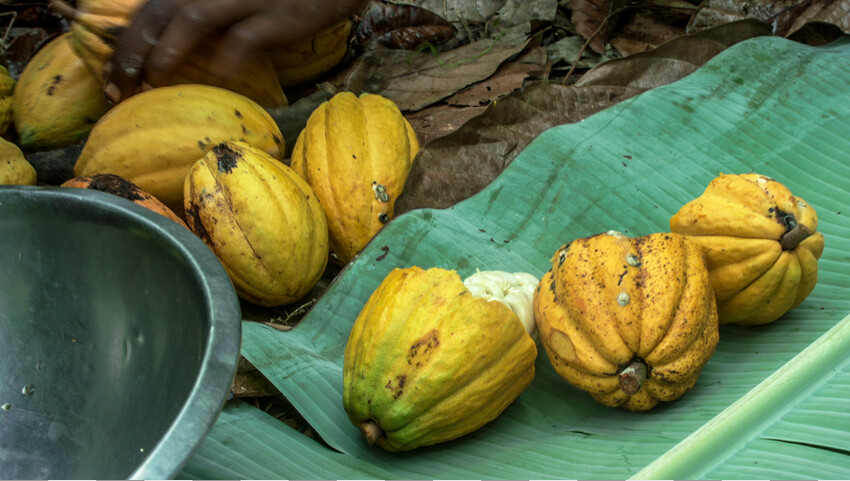
Trias supports cocoa producers to look for different markets where they can sell their beans. Especially markets that can guarantee them a decent income, so they earn enough to make ends meet. Now, it’s generally the multinational chocolate companies or supermarkets that get the biggest profit. Trias wants to change that.
inclusion of women
And youth
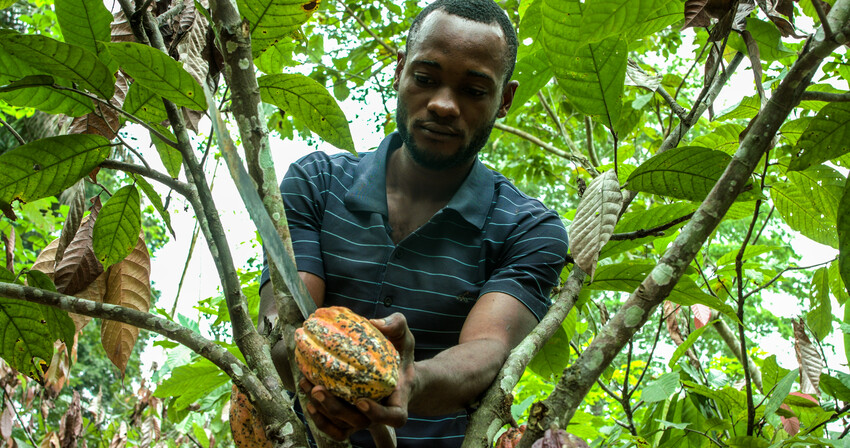
Why do we focus on that? “Because young people and women in this industry still face many challenges. They have lots of difficulties to access land or financing”, explains Gérardine Sonkoue Tchiadze, director of Conaprocam. This umbrella cocoa cooperative has been active for over 20 years in Cameroon, supporting farmers all over the country.
cocoa cooperatives sharing
their best practices
We provide training to our partners on how to diversify their production and how to adopt climate-friendly agricultural practices. For example, we just started the process of obtaining a Fairtrade certification for cocoa cooperative Cocama in DR Congo. Such a label ensures that producers earn a fair income.
Moreover, the main goal is that cocoa cooperatives share tools and best practices among themselves and that way learn from each other. For example, Cocama and Conaprocam will exchange experiences on topics like gender equality and inclusion in their organisations.
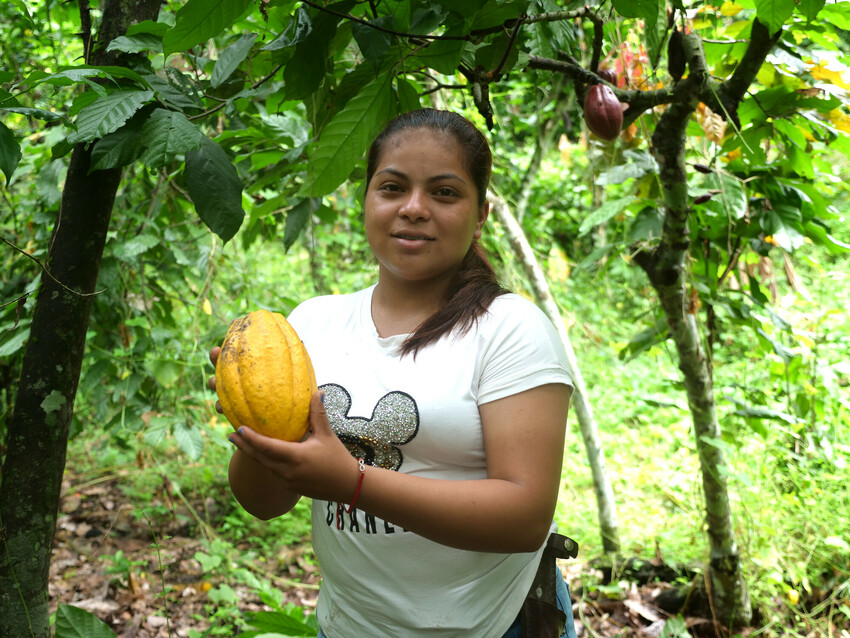
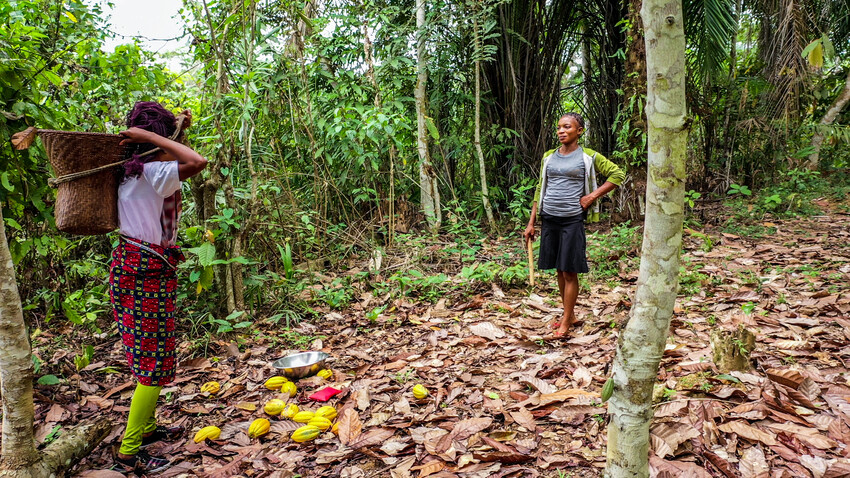
“Conaprocam encourages young people and women to join cooperatives. We do this through awareness-raising, training and other forms of support, making it easier for them to enter the sector. For example, some youngsters and women have been trained in cocoa, maize and livestock farming. We continue to think about how to integrate them even better into the sector and into our cooperative. In this way, Conaprocam’s youth movement will become even more effective.”
Gérardine Sonkoue Tchiadze, director of Conaprocam.
This project is made possible thanks in part to the support of the Belgian province of West Flanders.
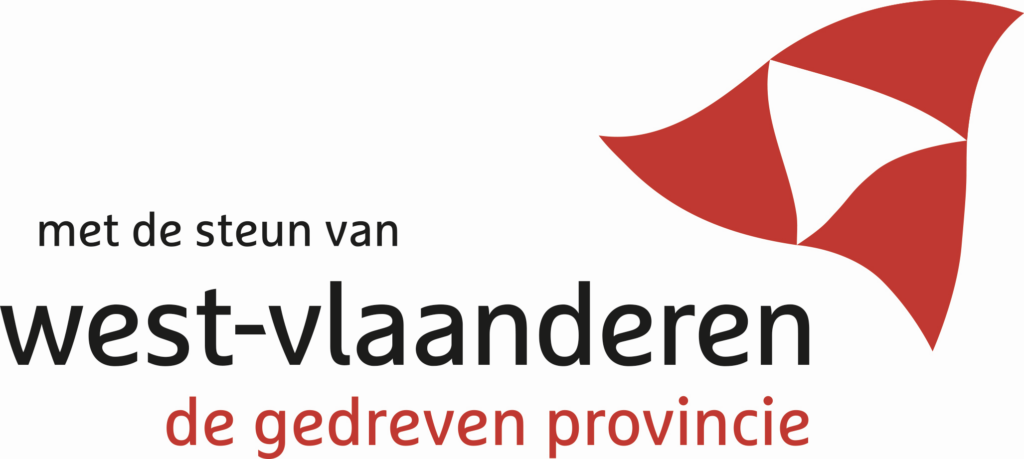
Share
- The link has been copied to the clipboard
Cookie preferences
Cookies make this site work properly (login, security, support) while others allow us to personalise marketing materials (Google, Facebook and others).
Read more about our cookie policy